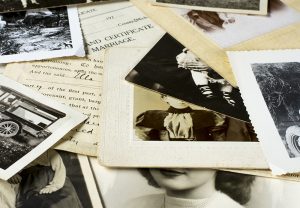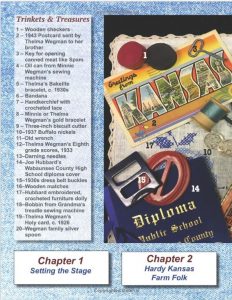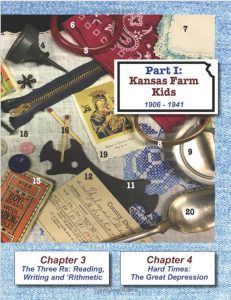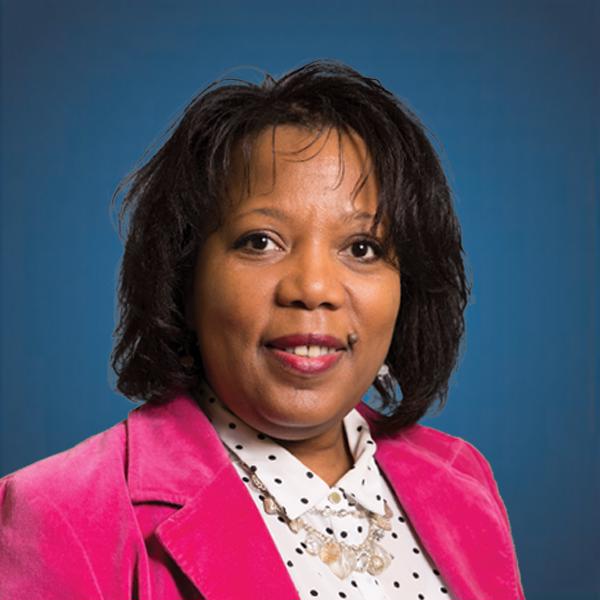Writing your family's story
One of the best ways to preserve your family history is to write your family's story.
In my genealogy classes we discuss how we each have family stories. Those stories tell about our local, state, regional and national history! One person's story can tell us what life was like in many different facets. We can tell the story of our culture, our neighborhood and our family's experiences. That is how we learn our collective history.
One Kansas Family: Stitched Together with Memories
Photos used with the author's permission.
In One Kansas Family: Stitched Together with Memories, author, Terry Stahl writes about her family's 20th Century experiences in Kansas. She discusses the Great Depression, drought, World War II and how the Cold War overshadowed her family. Her book is an example of how you can research your family and tell your family's stories in creative ways. Throughout her book she uses a family quilt, and it's squares to illustrate their story. It includes colorful timelines, photos of family members, their homes, trinkets and stories.
Stahl will tell you how to Write Your Own History Wed, Jan 18, 2023, 7pm in the library's Learning Center.
Benefits of gathering your family history
Your family has had interesting and unique experiences as well. The reason I do family history research is that my family did not pass down our stories. I want to know what their experiences were.
Through my research I have learned about my family's neighbors, their neighborhood and the cities they lived in. It paints a picture of how they were influenced, who they became and how I came to be. These stories in the backdrop of the history of their community paints a far larger portrait of their lives than just one family story passed down ever could.
Family history will reflect on the lives of your children and their children. Telling your family stories is the next step in preserving them for generations to come. We often view movies, read books or documentaries about other folk's family stories. Each of our stories are just as interesting. The key is how to collect and tell it. Interview your family members and collect stories they have about a family member.
My mother's family is from Greece and Italy. She was a wonderful storyteller, and this is one of my favorites. She shared it with her children and grandchildren, and it always made us laugh. During WWII, she received two marriage proposals along with two engagement rings. She declined those proposals and tried to return the rings to the two young men. They both insisted she keep the rings, which she did. Eventually, she sold them and bought a beautiful wedding ring set she saw in a magazine. She saved those rings and when my father asked her to marry him and told her he couldn't afford to buy her a ring, she said, don't worry about that. I already have the perfect rings. - Gina Millsap, retired library CEO
Getting started with family history research
 If you need help finding your family history, take a beginners or advanced genealogy class at the library. Your library card gives you access to several genealogy tools online and in the Topeka Room.
If you need help finding your family history, take a beginners or advanced genealogy class at the library. Your library card gives you access to several genealogy tools online and in the Topeka Room.
My friend Nicka Smith, has a YouTube channel and a website and podcast to share her research and help others learn how to research and share their family stories.
Tips & activities on how to share family history
- Preserve Your Family in the New Year
- Save a Memory That Could Be Lost
- Family Trivia Game
- 7 proven benefits of sharing family stories with all ages (americanasteeples.com)
- Timelines from your online family tree (FamilySearch, MyHeritage and Ancestry) or personal genealogy software can give you a start to creating your family's story.

















